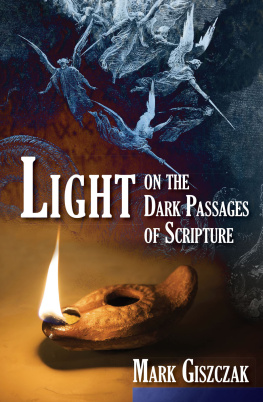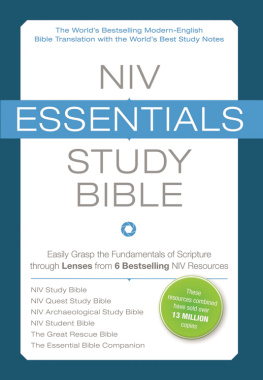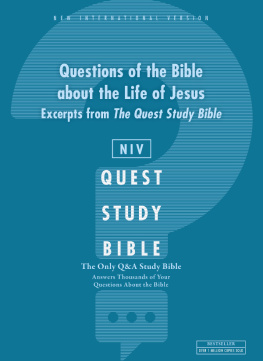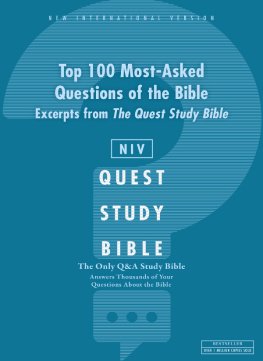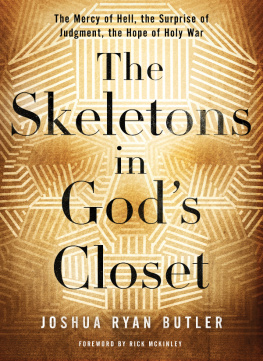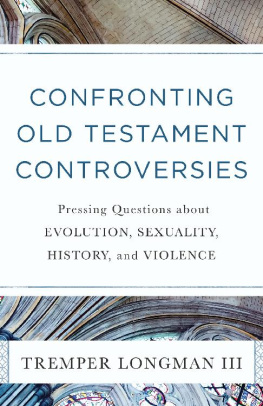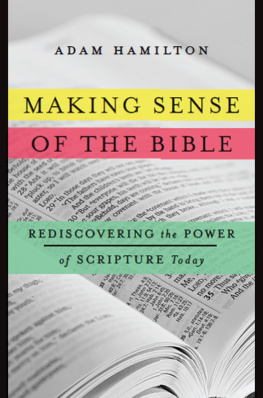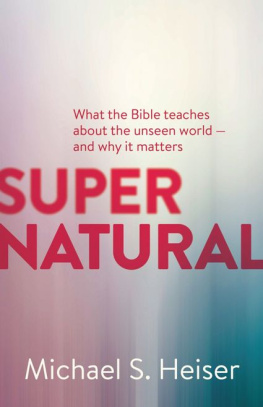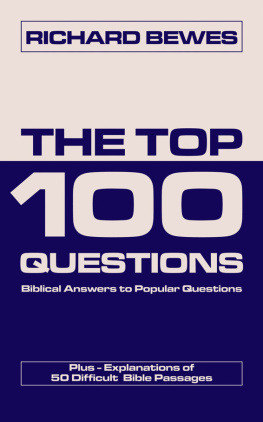
Light on the Dark Passages of Scripture
LIGHT on the Dark Passages of Scripture
Mark Giszczak
Our Sunday Visitor Publishing Division
Our Sunday Visitor, Inc.
Huntington, Indiana 46750
Nihil Obstat
Msgr. Michael Heintz, Ph.D.
Censor Librorum
Imprimatur
Kevin C. Rhoades
Bishop of Fort Wayne-South Bend
August 28, 2015
The Nihil Obstat and Imprimatur are official declarations that a book is free from doctrinal or moral error. It is not implied that those who have granted the Nihil Obstat and Imprimatur agree with the contents, opinions, or statements expressed.
Unless otherwise noted, the Scripture citations used in this work are taken from the Catholic Edition of the Revised Standard Version of the Bible (RSV), copyright 1965 and 1966 by the National Council of the Churches of Christ in the United States of America. Used by permission. All rights reserved.
Scripture quotations marked NRSV are taken from the New Revised Standard Version Bible: Catholic Edition, copyright 1989, 1993 by the National Council of the Churches of Christ in the United States of America. Used by permission. All rights reserved.
Scripture quotations marked (ESV) are from ESV Bible (The Holy Bible, English Standard Version), copyright 2001 by Crossway, a publishing ministry of Good News Publishers. Used by permission. All rights reserved.
Every reasonable effort has been made to determine copyright holders of excerpted materials and to secure permissions as needed. If any copyrighted materials have been inadvertently used in this work without proper credit being given in one form or another, please notify Our Sunday Visitor in writing so that future printings of this work may be corrected accordingly.
Copyright 2015 by Mark Giszczak. Published 2015.
20 19 18 17 16 15 1 2 3 4 5 6 7 8 9
All rights reserved. With the exception of short excerpts for critical reviews, no part of this work may be reproduced or transmitted in any form or by any means whatsoever without permission from the publisher. For more information, visit: www.osv.com/permissions.
Our Sunday Visitor Publishing Division, Our Sunday Visitor, Inc., 200 Noll Plaza, Huntington, IN 46750; 1-800-348-2440.
ISBN: 978-1-61278-803-6 (Inventory No. T1609)
eISBN: 978-1-61278-371-0
LCCN: 2015949862
Cover design: Tyler Ottinger
Cover art: Shutterstock
P RINTED IN THE U NITED S TATES OF A MERICA
Endorsements
This is the best book I know that explainsand doesnt explain awaythe truly difficult texts of Scripture. Based on solid scholarship but written in clear, crisp, contemporary language this book will help everyone to understand Gods plan of progressive revelation. I cant recommend this book enough!
Ralph Martin, S.T.D.
We love sacred Scripture, but what about those passages that talk about polygamy, rape, war, hell, judgment, and punishments? In Light on the Dark Passages of Scripture, Mark Giszczak guides us through the museum of dark passages and eventually leads us to the display of Gods love in Christ as the answer to the human messiness of redemptive history.
Taylor Marshall, Ph.D.
Contents
Part I
Confronting a Conundrum

Chapter 1
Gut Reactions to the Old Testament God
I remember his face. My friend was outraged. He asked, Can you envision grabbing a little boy by his curly hair and slitting his throat with a swordall in the name of God? His gestures displayed the grotesque act, and his expression revealed his anger at my obstinacy. I found myself in the awkward position of trying to defend the seemingly indefensible, the command that God gave to his people in the Old Testament to conquer the Canaanites and kill every man, woman, and child. The horror of this command and its practical consequences prompted my friends outburst. I wanted to explain but was at a loss for words. I wanted to show him how this terrifying instruction fit into the plan of a loving, merciful God who sent his Son to die for our sins, but I couldnt formulate a convincing explanation.
You dont have to look very far in the Old Testament to find some problems to deal with: Why does God strike down the Egyptian firstborn? Why does God order Abraham to sacrifice his son? Why does Elijah slaughter the four hundred fifty prophets of Baal? Why does God send plagues on his people that wipe out thousands? Why does God approve the seemingly vigilante justice of heroes such as Phinehas, who skewered an adulterous couple with a spear? If youve spent considerable time reading the Bible, youll have a whole laundry list of problems. By problems, I mean those events or teachings in biblical history that dont easily line up with what we know about God from the New Testament and the teachings of the Church.
At times, the problems can prompt you to shift in your chair or feel a bit squeamish. But other times, the problems can result in a crisis of faith. In fact, many atheist writers cite the challenging passages of the Old Testament when they rail against Christian belief and practice. Not everyone demands a solution to these thorny issues, but many use them as a reason, or perhaps an excuse, to dismiss the God of the Bible as an angry, harsh, cruel power-monger. Oftentimes we are left without answers, without an adequate response to offer to those who challenge our faith because of these so-called dark passages. Yet it is crucial that we can respond wellfor our own faith, for our Christian friends whose faith may be tested by the dark passages, and in a special way for non-Christians who resist the Gospel because of the Old Testament. If we can show how the dark passages comport with an ethical Christian worldview, how they reveal God, how they prepare for Christ, then perhaps we can be better witnesses for him.
Solutions Good and Bad
Unfortunately, Scriptures that make us squirm are tough to deal with. Their very darkness can lead us into overly simplistic or simply incorrect interpretations. In order to read Scripture correctly, we should be looking for what the human author and divine Author intended, how the whole fits together, and how it can be understood in the context of the Christian tradition. But before we get down to the details of applying such an approach, we need to look at a few bad solutions to our problem. The bad solutions are tempting because they are easy. They avoid the hard questions, and they let us off the hook. The trouble is that they dont say what needs to be said. They dont address the atheists deep question. They dodge the problems rather than taking them head-on.
The first bad solution is what I call the shrug. The shrug happens when a Bible reader is happily reading along, perhaps even praying the Psalms, and comes across a line like, Blessed is the one who seizes and smashes your children against the rock (Ps 137:9). Rather than being startled, getting angry, or standing in awe of Gods mystery, this Bible reader says to himself: Thats weird! Well, it is the Old Testament. He shrugs, moves on, and doesnt give it another thought. This easy solution is practical, but it is simply a dodge of the problem, not an explanation. It cannot survive the onslaught of hard questions from doubters. The shrug avoids the issues, but cant answer them.
Unfortunately, Scriptures that make us squirm are tough to deal with. Their very darkness can lead us into overly simplistic or simply incorrect interpretations
Next page
